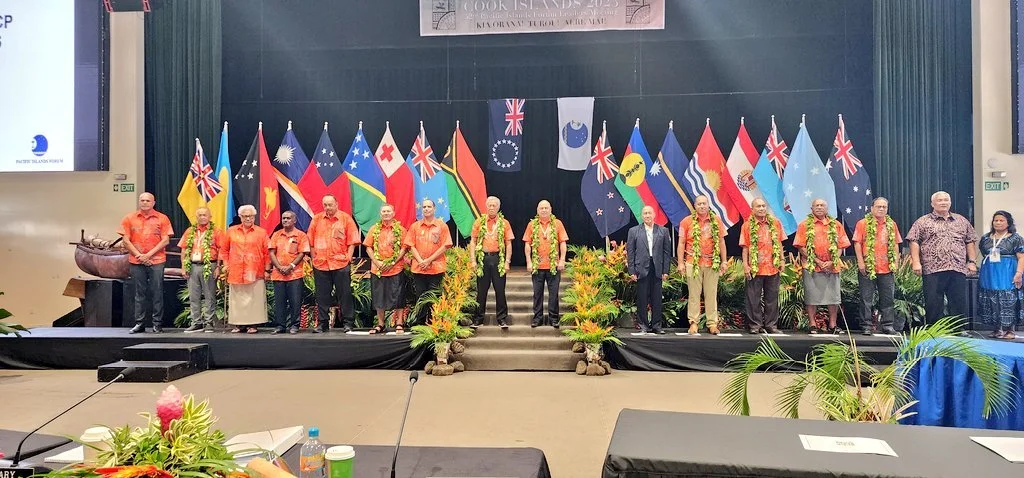Forging Progressive Alliances: The Pacific ACP's Roadmap with the EU and the Dawn of the Samoa Agreement
Written by Kirisitiana Uluwai and Image Courtesy: PACNEWS
The Pacific ACP Leaders Meeting, at the 52nd Pacific Islands Forum Leaders Meeting 2023, focused on how the region, as part of 79 Group of States of the most disaster-prone and climate-vulnerable nations in the world, can take advantage of opportunities and be more progressive when dealing with partners like the European Union. The ACP comprises 48 countries in Sub-Saharan Africa, 16 in the Caribbean, and 15 in the Pacific.
For the first time, the Pacific will host the Organisation of African, Caribbean, and Pacific States next week in Samoa for the signing of the Samoa Agreement, a legally binding document governing relations between the EU and the Pacific.
The Samoan Agreement will supersede the Cotonou agreement that the Pacific became a signatory to in 2000.
“Well, we've just concluded, firstly, the Pacific ACP leaders meeting this morning,” says Cook Island Prime Minister Hon. Mark Brown. “Essentially the key outcomes of that were the acknowledgment of the signing of the small agreement which will take place in Apia next week, and the resounding support and endorsement by Pacific leaders for the finalisation, the signing, and the ratification of this particular agreement”.
He also mentioned the confirmation of the Pacific Climate Champions that will lead various aspects at COP28 in Dubai later in November and acknowledged Australia’s and others’ support with the initiative.
“I’d like to thank the three Pacific leaders and the five senior ministers from the various countries of the forum that will be championing certain aspects … of very great importance to us in terms of climate change.”
EU Support for development
The EU says it is ready to support hydropower development in Fiji and are financing feasibility studies in Kiribati for the construction of a deep-sea, multi-purpose port on Christmas Island. And in Papua New Guinea, the European Investment Bank is joining forces with the EU’s French colleagues to rehabilitate the Port of Rabaul.
“There will be a Pacific protocol which really goes into depth of our relations with this region,” said Barbra Plinkert, Ambassador of the European Union to Singapore. “Analysing together jointly what are the priorities for the Pacific and then jointly implementing those priorities.”
She recognised the differences in priorities for the various members of the ACP and highlighted the need for focusing on what works for the Pacific.
“So, we are looking forward to implementing this Pacific-EU protocol,” stated Plinkert. “The Cotonou Agreement was more about development cooperation, and is still about development cooperation, but it goes more in depth in strengthening our overall comprehensive relationships between the EU and the ACP countries.”
The EU guarantees full, free access to the EU common market through the Economic Partnership Agreement, or the EPA, which Tonga, Tuvalu and Niue have recently requested access to.

